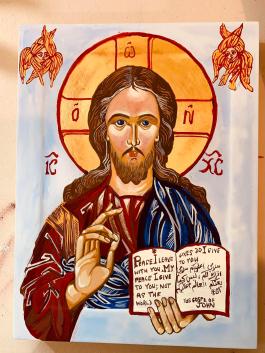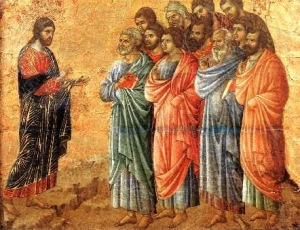The prophet Isaiah announced the coming of one who would be called Prince of Peace. When Christ was born in Bethlehem, the angels announced peace on earth, and Christ later told the apostles that he came to bring peace such as the world cannot give. But when we look around us, we see a great lack of peace. In this meditation, we use texts of Scripture, St Gregory of Nyssa, St John Paul II and St Josemaria Escriva to consider:
-
- How the Scriptures speak repeatedly of peace
- What peace is
- How peace begins in the human heart
- How we can grow in peace by loving God more and following the promptings of the Holy Spirit
- How we can spread peace around us, in our family, our workplace and in society







